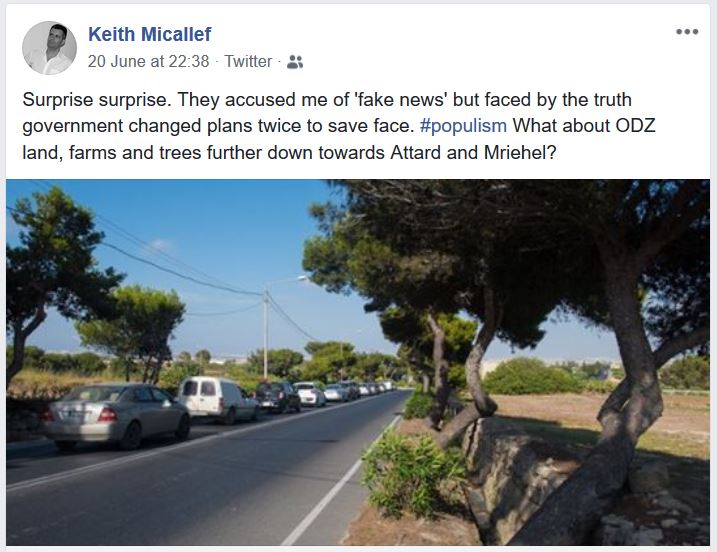A British parliamentary committee has recommended that the UK government should stop using the term “fake news” because it has come to encompass information dismissed for the wrong reasons.
The UK Parliament’s Digital, Media, Sports and Culture committee drew up an interim report following more than a year of investigations into fake news and misinformation, social media companies and elections in the UK.
The committee said the government should stop using the term “fake news” because “the term has been adopted to mean everything from purposely misleading information to information a figure just doesn’t like,” CNN reported.
The committee’s report also cites evidence that data firm SCL had been “advising Malta’s Labour Party for several years before the 2013 elections”.
Ironically, the Maltese government’s reaction to the report was to call it fake news, saying in a statement on Monday that it contained “false and unsubstantiated information” denied by the government.
The use of the term “fake news” by Maltese politicians has been a regular habit. Tourism Minister Konrad Mizzi told MEPs investigating the Panama Papers leak that he was “the victim of fake news”.
He also said that local media took part in a “wider coordinated attack aimed at character assassination” that was “orchestrated by the Nationalist Party”.

Last month, a spokesperson for the Foreign Affairs Ministry accused The Times of Malta of “fake news” for reporting that 200 trees were going to be uprooted in Rabat Road, leading to Saqqajja Hill, as part of the Central Link project. This figure was based on an examination of the plans submitted by the authorities to the Planning Authority.
However, after The Times of Malta broke the story, and the accusation of fake news was made, plans changed so the number of uprooted trees was reduced. Yet, rather than admitting to the change of plans following public outcry, the government attempted to discredit the journalists. Tranport Minister Ian Borg added #realnews and #notfakenews to his Facebook post.

The Shift News reported on the disinformation surrounding the controversial project.
Prime Minister Joseph Muscat also regularly uses the term, even using it to answer a request for an interview with The Malta Independent in 2017, which he later turned down. .
The British parliamentary committee warned that misinformation and “fake news” was threatening democracy and said technology companies such as Facebook and Twitter should be held responsible and liable for “harmful and illegal content on their platforms”.













